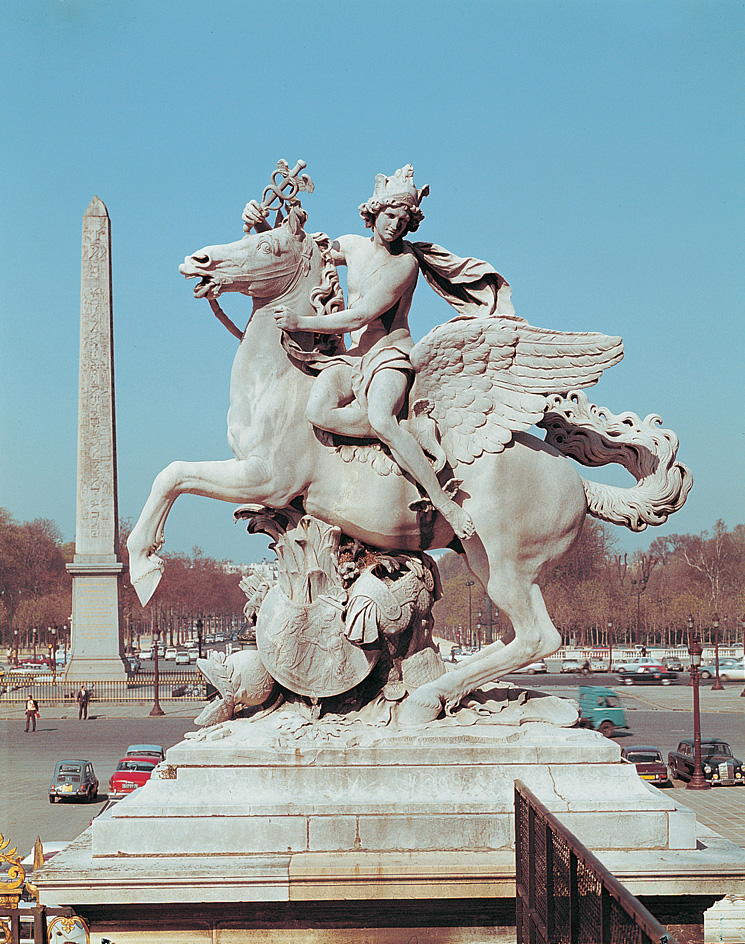Mercury was the messenger of the gods in Roman mythology. He was also the god of roads and travel. In addition, the ancient Romans also worshiped Mercury as the god of commerce, property, and wealth. The words commerce, merchandise, and merchant are related to his name. The Romans considered Mercury crafty and deceptive. They even saw him as a trickster or thief. Criminals regarded him as their protector. Mercury resembled the messenger god Hermes in Greek mythology. As a result, he took on many of Hermes’s myths.

Mercury delivered his messages with miraculous speed because he wore winged sandals called talaria. He also wore a broad-brimmed winged hat called a petasus. He carried a winged staff. The Greeks called the staff a kerykeion, from the Greek word for messenger. In Latin, the language of the Romans, the word was changed to caduceus. Mercury’s caduceus had two snakes curled around it. In ancient times, most messengers and travelers wore a hat similar to Mercury’s petasus to protect them from the sun. Messengers also carried a staff to identify themselves so they could travel freely. Mercury later became associated with magic and science. His caduceus is frequently confused with the single-snake crutch of Aesculapius, the Roman god of healing.
Mercury was the son of Jupiter, the king of the gods. His mother was Maia, a minor goddess. Artists portrayed him as a handsome young man. He usually wears an expression of alertness and intelligence.
